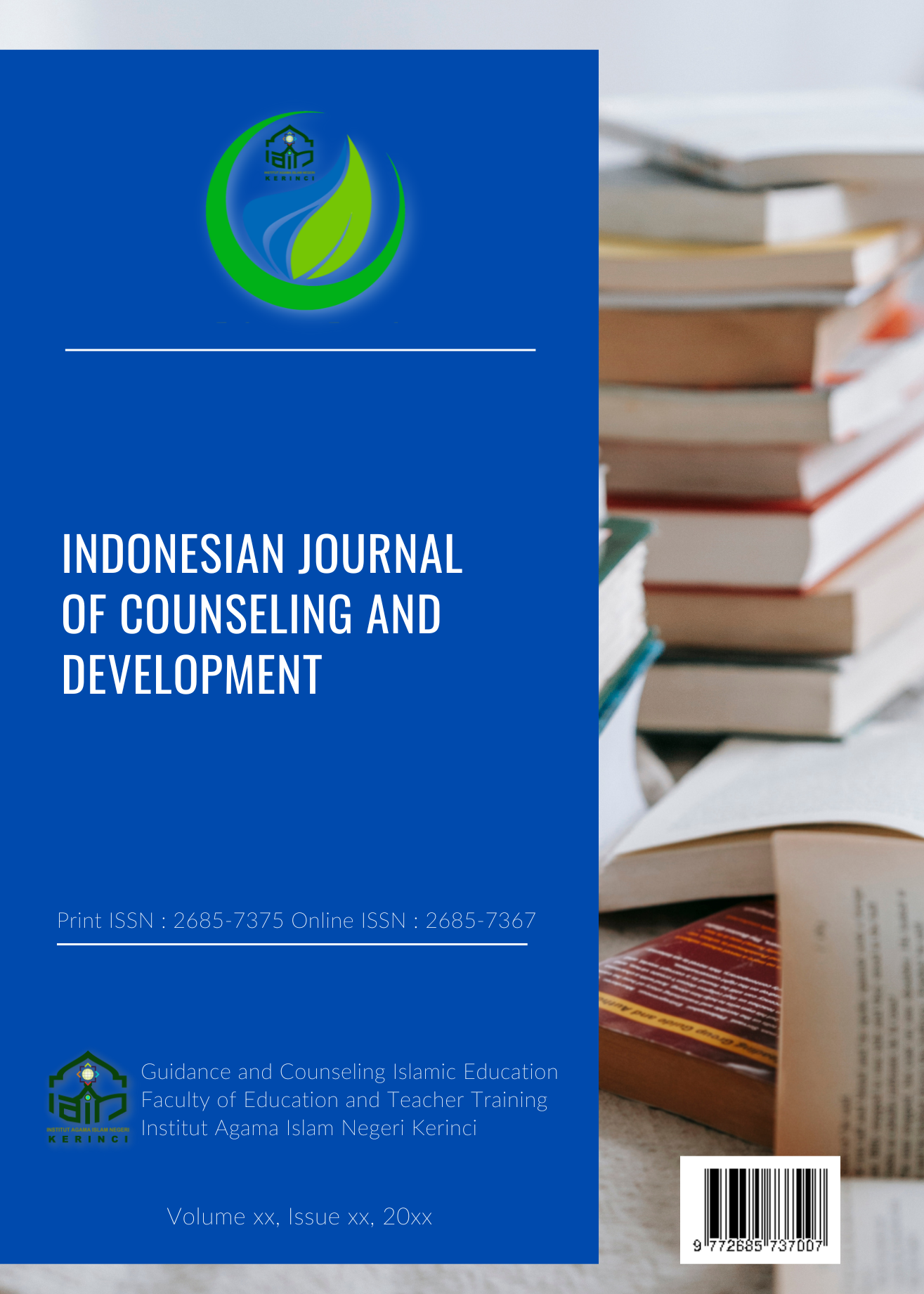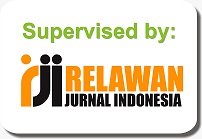Personal Adjustment Santri Scale (PASS): Pengembangan Instrumen Penyesuaian Diri Santri di Pondok Pesantren
Abstract
This study aims to develop a personal adjustment measurement tool specifically designed for santri (Islamic boarding school students) in pondok pesantren (Islamic boarding schools). The adjustment process for santri involves unique challenges arising from the boarding system, pesantren culture, and both internal and external demands, which differ from those faced in regular school settings. The instrument was developed based on Schneiders’ (1955) Adjustment Theory, with six dimensions contextualized to the santri experience: academic, social, dormitory life, emotional, moral, and sexual adjustment. A quantitative approach was employed following the scale development procedures proposed by DeVellis and Cohen & Swerdlik (2017). The initial instrument, consisting of 26 questionnaire items, underwent readability testing with 30 santri, followed by expert judgment from four professionals for content validity. Empirical testing was conducted with 300 santri from four pesantren in South Tangerang using Confirmatory Factor Analysis (CFA) and reliability testing. The results demonstrated a good model fit (CFI = 0.95; RMSEA = 0.056; SRMR = 0.059) and high reliability (α = 0.877). The instrument was proven to be valid and reliable for measuring santri adjustment and may serve as an early identification tool and the basis for psychological interventions in pesantren. The PASS can be practically used by school counselors, boarding supervisors, and Islamic educators to monitor santri adjustment and provide timely psychosocial support. This study also contributes theoretically to the development of educational psychology grounded in Islamic values in Indonesia.
Downloads
References
Almanasreh, E., Moles, R., & Chen, T. F. (2019). Evaluation of methods used for estimating content validity. Research in Social and Administrative Pharmacy, 15(2), 214–221. https://doi.org/10.1016/j.sapharm.2018.03.066
Azra, A. (2019). Pendidikan Islam: tradisi dan modernisasi di tengah tantangan milenium III. Prenada Media.
Baker, R. W., & Siryk, B. (1989). Student adaptation to college questionnaire. In Program of the Seventy-Fourth Annual Meeting.
Bashori. (2020). Resolusi Manajemen Konflik (Kajian Manajemen Konflik di Lembaga Pendidikan Islam). Jurnal Ilmu Pendidikan PKN & Sosial Budaya, 4(2), 337–349. https://doi.org/10.31597/cc.v4i2.318
Browne, M. W., & Cudeck, R. (1992). Alternative Ways of Assessing Model Fit. Sociological Methods & Research, 21(2), 230–258. https://doi.org/10.1177/0049124192021002005
Bujang, M. A., Omar, E. D., Foo, D. H. P., & Hon, Y. K. (2024). Sample size determination for conducting a pilot study to assess reliability of a questionnaire. Restorative dentistry & endodontics, 49(1).
Cernat, A., Sakshaug, J., Christmann, P., & Gummer, T. (2024). The impact of survey mode design and questionnaire length on measurement quality. Sociological Methods & Research, 53(4), 1873–1904.
DeVellis, R. F. (2017). Scale development: Theory and applications (4th ed). SAGE Publications.
Etikan, I., Musa, S. A., & Alkassim, R. S. (2016). Comparison of convenience sampling and purposive sampling. American journal of theoretical and applied statistics, 5(1), 1-4.
Fitniwillis, F & Aaqilah, D. R. (2024). Pengaruh DukunganSosialterhadapPenyesuaian Diri Santri Kelas VIII. JIIP-Jurnal Ilmiah Ilmu Pendidikan, 7, 454–459.
Fitriyanto, Shahieza, N. S., Pertiwi, D. K., Yuli, N. G., Satria, J., Arsitektur, J., Indonesia, U. I., Pakem, K., & Sleman, K. (2024). Fenomena placemaking terhadap batasan tak terlihat pada aktivitas santriwan dan santriwati di pondok pesantren kalimosodo. 7(1), 570–580.
Haiffahningrum, D. N., & Satiningsih. (2022). Pengalaman penyesuaian diri bagi santri baru di lingkungan pesantren x: Studi fenomenologi. Character: Jurnal Penelitian Psikologi., 9(7), 1–13.
Hair, J. F., Black, W. C., Babin, B. J., & Anderson, R. E. (2019). Multivariate Data Analysis . ((8th ed.)). Cengage Learning.
Hasyim, M., & Wahyuni, S. (2023). Integration of character and religious values in Islamic boarding schools in Indonesia. International Journal of Education and Learning, 5(1), 1–9. https://doi.org/10.31763/ijele.v5i1.642
Haynes, S. N., Richard, D. C. S., & Kubany, E. S. (1995). Content validity in psychological assessment: A functional approach to concepts and methods. Psychological Assessment, 7(3), 238–247.
Hidayah. K, Mappiare. A.T, S. A. J. (2024). Panduan teknik cangkrukan dalam bimbingan untuk meningkatkan penyesuaian sosial santri luhur. Research and Development Journal Of Education, 10(2), 1200–1207.
Hoelter, J. (1983). The analysis of covariance structures: Goodness-of-fit indices. Sociological Methods & Research, 11(3), 325–344.
Hu, L. T., & Bentler, P. M. (1999). Cutoff criteria for fit indexes in covariance structure analysis: Conventional criteria versus new alternatives. Structural Equation Modeling, 6(1), 1–55. https://doi.org/10.1080/10705519909540118
Jasman, Fadhillah, K., & Rosdialena. (2023). Layanan Bimbingan Kelompok Untuk Meningkatkan Penyesuaian Diri Santri di Asrama. Innovative: Journal Of Social Science Research, 3(3), 4285–4298. https://j-innovative.org/index.php/Innovative/article/view/2614
Jasmita, R., Yandri, H., Kholidin, F. I., Ahmad, B., & Juliawati, D. (2025). The Influence of Stress and Self-efficacy on Adolescent Psychological Well-being. TERAPUTIK: Jurnal Bimbingan dan Konseling, 9(1), 1-11.https://doi.org/10.26539/teraputik.913947
Juliawati, D., Yandri, H., Kholidin, F. I., Rasmita,R., Daflaini, D., & Fidya, Y.(2023). Integrating Islamic-Based Behavioral Activation with Buya Hamka's Tazkiyatun Nafs to Reduce Social Media-Induced Anxiety among University Students. Buletin Konseling Inovatif, 5(2). 199–209. https://doi.org/10.17977/um059v5i22025p199-209
Kaynak, S., & Kan, A. (2024). School adjustment scale for high school students: Development and initial validation. Psychology in the Schools, 61(11), 4063-4079.
Khamida, Mubarak, R., & Budury, S. (2019). Relationship between spiritual quotient and self-adjustment of students at jabal nor islamic boarding school, sidoarjo, Indonesia. Journal of Public Health in Africa, 10(S1), 57–60. https://doi.org/10.4081/jphia.2019.1184
Khasanah, N., & Nabila, K. I. (2020). Pembaharuan Sistem Pendidikan Di Pesantren. Al-Insyiroh: Jurnal Studi Keislaman, 6(1), 101–114. https://doi.org/10.35309/alinsyiroh.v6i1.3819
Mahmudah, N. (2015). Memotret Wajah Pendidikan Seksualitas di Pesantren. Quality, 3(1), 133–157.
Medinnus, G. R. (1961). The Development of a First Grade Adjustment Scale. Journal of Experimental Education, 30(2), 243–248. https://doi.org/10.1080/00220973.1961.11010711
McCowan, C., McIlveen, P., McLennan, B., & Ciccarone, L. (2024). Career education and development scales for primary school and junior secondary school students. International Journal for Educational and Vocational Guidance, 1-19.
Novadelian, A., & Rozali, Y. A. (2017). Kategorisasi Adversity Intelligence Pada Santri. https://digilib.esaunggul.ac.id/public/UEU-Undergraduate-9880-JURNAL.Image.Marked.pdf
Perawironegoro, D. (2019). Manajemen Asrama di Pesantren. Tadbir : Jurnal Studi Manajemen Pendidikan, 3(2), 129. https://doi.org/10.29240/jsmp.v3i2.944
Peterson, A. P., Fagan, C., & Smith, R. (2015). Psychometric Evaluation of the Brief Adjustment Scale-6 (BASE-6): A New Measure of General Psychological Adjustment. 6.
Scheneiders. (1955). Personal adjustment and mental health. In Personal Adjustment and Mental Health. https://doi.org/10.1037/14399-018
Subhiyah, M., & Nashori, F. (2021). Peran Penyesuaian Diri Sebagai Mediator Dari Pengaruh Religiusitas Terhadap Kebahagiaan Santri Pondok Pesantren. Psychosophia: Journal of Psychology, Religion, and Humanity, 3(1), 1–12. https://doi.org/10.32923/psc.v3i1.1622
Toyibah, D. A., & Rifki, P. N. (2022). Hubungan Antara Kecerdasan Emosional Dan Adversity Quotient Dengan Penyesuaian Diri Pada Santri Remaja Pondok Pesantren Amalul Ummah Kendal. Jurnal Metafora, 1(2).
Triyuliasari, A., & Mubarok, A. S. (2024). Self-Adjustment in Modern Islamic Boarding Schools: A Study of Self-Regulation and Religiosity among Students. Jurnal Psikologi Islam Dan Budaya, 7(1), 57–68. https://doi.org/10.15575/jpib.v7i1.28982
Umar, J., & Nisa, Y. F. (2020). Uji Validitas Konstruk dengan CFA dan Pelaporannya. Jurnal Pengukuran Psikologi Dan Pendidikan Indonesia, 9(2), 1–11. https://doi.org/10.15408/jp3i.v9i2.16964
Wahyuni, I. W. (2018). Penerapan Nilai-Nilai Moral Pada Santri Tpq Al-Khumaier Pekanbaru. Generasi Emas, 1(1), 51–61. https://doi.org/10.25299/ge.2018.vol1(1).2256
Copyright (c) 2025 Shafiyyah Muthi'ah, Azizah Fajar Islam

This work is licensed under a Creative Commons Attribution 4.0 International License.








